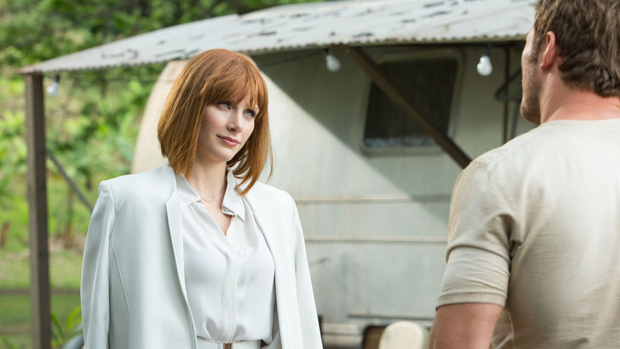Jurassic World: dinosaur fun or 'big, dumb, sexist mess'?
Revival of Spielberg's dinosaur drama prompts nostalgia, science scepticism and accusations of sexism

A free daily email with the biggest news stories of the day – and the best features from TheWeek.com
You are now subscribed
Your newsletter sign-up was successful
Two decades after Steven Spielberg unleashed Jurassic Park, and 15 years after the last instalment of the cinema blockbuster, its CGI dinosaurs are making a comeback with the long-awaited sequel Jurassic World.
The fourth instalment of the Jurassic franchise is directed by Colin Treverrow and stars Chris Pratt, Bryce Dallas Howard and Nick Robinson. Set 22 years after the events of the original Jurassic Park (1993), the film returns to Isla Nublar, somewhere near Costa Rica, where a dinosaur theme park, Jurassic World, is operating.
With visitor numbers declining, the park has created a new genetically modified attraction to re-ignite visitors' interests. The fun starts when the hybrid dinosaur Indominus Rex, which resembles a T Rex with horns, inevitably goes rogue, wreaking jaw-gnashing havoc on the island.
The Week
Escape your echo chamber. Get the facts behind the news, plus analysis from multiple perspectives.

Sign up for The Week's Free Newsletters
From our morning news briefing to a weekly Good News Newsletter, get the best of The Week delivered directly to your inbox.
From our morning news briefing to a weekly Good News Newsletter, get the best of The Week delivered directly to your inbox.
Several critics have given the film the thumbs up ahead of its release tomorrow. Kate Muir awards it four stars in The Times and describes it as "humongously enjoyable", while AV Club's AA Dowd describes it as a "fitfully entertaining summer movie" that understands and winks at its place in the pecking order of blockbuster sequels.
But others have questioned the plausibility of the film's dinosaurs, and even its feminist credentials.
Some dinosaur experts have denounced the film as "just another monster movie", which has ignored many of the scientific discoveries of recent years, says The Independent.
After the first trailer for Jurassic World aired, "frustrated" enthusiasts took to Twitter to voice their annoyance, says Rebecca Hawkes in the Daily Telegraph. "Mega-mosasaur has palatal teeth (well done) but no forked tongue-tip as per the platynotan hypothesis (boo)," wrote one zoologist. And despite new scientific research suggesting many dinosaurs had feathers, the film is sticking to the "traditional" scaly look.
A free daily email with the biggest news stories of the day – and the best features from TheWeek.com
Other purists will have a problem with the name of the franchise, says Hawkes. The park might be called Jurassic World but, as with the earlier films, several of its dinosaurs, including T-Rex and Triceratops, are in fact from the Cretaceous period.
But it's not just the scientific accuracy of the dinosaur world that has been criticised. Others have complained about what they see as prehistoric gender politics in the film.
Writer/director Joss Whedon condemned an online clip for the film as "70's era sexist", reports The Guardian. Commenting on the scene where Pratt's boorish Owen Grady attempts to flirt with Howard's uptight Claire Dearing, Whedon tweeted: "She's a stiff, he's a life-force – really? Still?"
Meanwhile, Marlow Stern at the Daily Beast sums it up as a "big, dumb, sexist mess".
The film's director, Trevorrow, defended the film, saying that the studio, Universal, had chosen to promote the film with an unrepresentative clip, shown out of context. "The real protagonist of the movie is Claire and we embrace her femininity in the story's progression," Trevorrow said.
Despite the criticisms, experts have predicted a monster opening of more than $100m for Jurassic World, which comes to UK cinemas on Friday 11 June.